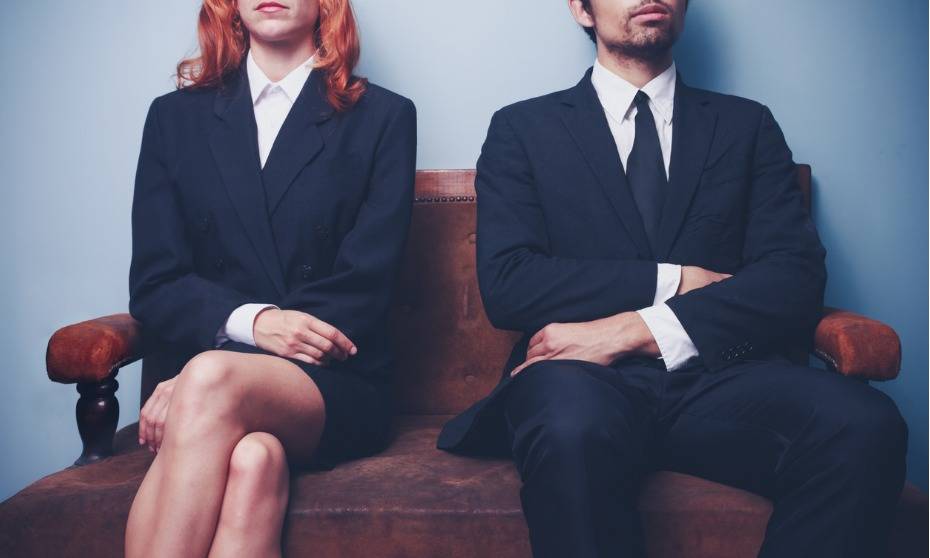
British Columbia's Supreme Court is trailing behind other courts in the province in terms of gender balance, despite the federal justice department’s proclamation that in 2017, it made 100 judicial appointments nationally, of which half were women.

British Columbia's Supreme Court is trailing behind other courts in the province in terms of gender balance, despite the federal justice department’s proclamation that in 2017, it made 100 judicial appointments nationally, of which half were women.
Of the 110 BCSC justices listed on the court's website only 40 — or 36 per cent — are women, the latest appointment coming with Madam Justice Francesca Marzari in December 2017, a replacement for Madam Justice Victoria Gray, who resigned Aug. 31, 2017.
By comparison, the BC Court of Appeal has 22 listed appeal justices with an even 50 per cent split in gender balance.
Gains have also been made at the BC provincial court level which lists 141 sitting or administrative judges (not counting the chief judge) with 59 or 41.5 per cent of the group women. In some court regions, the percentage of women judges is as high as 42.8 per cent as of the end of January 2018. The figures show a continued increase in female judge appointments over the past five years although men still outnumber women. The April 2016 to March 2017 B.C. provincial court annual report said: "Of the 42 judges appointed over the past five fiscal years, nearly half (24) have been women."
While 2017 has been touted as the “year of women” in terms judicial appointments, the male appointments still outpace women at the BCSC level. In 2017, Marzari was one of five female appointees compared to eight males who picked up shiny new BCSC gavels. Other women appointed to the BCSC in 2017 besides Marzari were Madam Justices Carla L. Forth, Nitya Iyer, Palbinder Kaur Shergill and Janet Winteringham. The five appointments, though, were not a record number but part of a trend.
Bill Veenstra, CBA BC branch president, says the federal government is aware of the gender imbalance that has occurred in the past and is attempting to resolve the issue. In the past five years, there have been nearly 20 female federal appointments to the BCSC.
“The gender imbalance has taken significant steps in the past five years,” he says.
B.C.’s jump in female appointees in the BCSC took a leap after 2012 — the year that saw six men appointed to the BCSC bench and no women. That changed the following year. In 2013, five women and five men were appointed. In 2014, two women were appointed and 2015, another two women. No men were appointed in either year. In 2016, five women were appointed and no men. In 2017, there were eight men appointed and another five women.
So far in 2018, only one BCSC appointment has been made, Justice Jasvinder S. (Bill) Basran who replaced Madam Justice Barbara Fisher whom, in turn, in 2017 was appointed to the BC Appeal Court, the only female of two BCCA appointments that year.
While approximately half of the sitting 40 BCSC female justices have been appoint within the past five years, the number falls short of achieving any gender balance, even if further appointments were made to fill the now vacant 10 positions that exist.
The CBABC has expressed concern over the vacant positions with Veenstra writing to the federal justice minister urging action to fill the positions but he has not had a response to their letter. The CBA BC letter did not specifically lobby for women appointees but expressed concern that a backlog of cases could occur. Veenstra noted as well that while the recently appointed female judges are excellent appointments, there is also the need to address diversity more broadly.
"She (Minister of Justice Jody Wilson-Raybould) has to carefully consider gender balance as well as ethnicity, sexual orientation, physical ability and other diversity factors," he says.
Women have fared better in the B.C. provincial court system recently, where Chief Judge Thomas Crabtree has striven to create diversity in appointments and in the way courts serve the justice system. From Jan. 3, 2017 to Jan. 2, 2018, there were 16 appointed judges, of which 11 were women.
Appointees were Delaram Jahani (the only female appointed so far in 2018), Andrea Ormiston, Dawn Boblin, Monica McParland, Mariane Armstrong, Michelle Daneliuk, Nancy Adams, Patricia Stark, Susan Mengering, Cassandra Malfair, and Cathie Heinrichs. Regional administration appointments were given in 2017 to two female judges Carmen Rogers and Ellen Burdett.
Kasari Govender, West Coast Legal Education and Action Fund’s executive director, has applauded the appointment of more women to the bench but she does not believe it translates into favoritism in judgments to women appearing before the bench.
"I think it is important that whoever is on the bench reflect all kinds of experience and identities,” she says. "Diversity is important."
"We are dealing with a human enterprise here," she adds "Judges are not robots when it comes to applying the law. They are judging the facts not just applying the law."
She says women appointees are becoming more common as they are stepping into leadership roles, no longer content to be limited by traditional legal paths such as family law or living under the pink glass ceiling in law large firms. They bring that leadership talent into the consideration for judicial appointments.
In B.C., women in the legal profession who have taken executive roles include former Liberal attorney general and solicitor general Shirley Bond, former provincial court chief judge Carol Baird Ellan, while a number of women have been appointed by the judicial council to associate chief judge.
The Law Society of B.C. is being led in 2018 by president Miriam Kresivo, along with vice president Nancy G. Merrill.
Editor's Note: Correction made Feb. 7 to reflect proper name of former attorney general and solicitor general Shirley Bond.
Correction made Feb. 16 to clarify comments from Bill Veenstra.